According to a recent report by BuiltWith, WooCommerce powers over 29% of all online stores globally, making it the most popular eCommerce platform on the planet. But here’s the kicker – most store owners are only scratching the surface of what their WooCommerce shops could actually do!
Why You Need Specialized WooCommerce Products
Let’s be real – vanilla WooCommerce is like getting a car without power steering or air conditioning. It’ll get you from point A to point B, but the journey won’t be particularly comfortable or efficient. That’s where specialized WooCommerce product companies come into play.
We’ve spent countless hours testing tools from the best WooCommerce product companies so you don’t have to waste your precious time (or money) on solutions that don’t deliver. Whether you’re struggling with shipping headaches, inventory nightmares, or checkout abandonment issues, there’s a specialized tool waiting to solve your specific problem.
So, let’s dive into the companies that are changing the game for WordPress store owners like you.
The Impact of Using Premium WooCommerce Extensions
Before we jump into our list, let’s talk about what happens when you invest in the right WooCommerce products versus trying to make do with basic functionality:
When you use quality WooCommerce extensions:
- Your conversion rates typically increase by 15-30%.
- Customer support inquiries decrease as self-service options improve.
- You save approximately 10-15 hours per week on manual tasks.
- Your store looks and functions more professionally.
- Security vulnerabilities decrease significantly.
When you don’t use specialized WooCommerce products:
- You’ll likely spend countless hours on manual processes.
- Your customers face friction during shopping and checkout.
- Your competitors with better tools will outpace you.
- You’ll hit growth ceilings that could have been avoided.
- You’ll end up cobbling together workarounds that eventually break.
Now, let’s look at the companies that are making waves in the WooCommerce ecosystem.
1. DotStore: The Swiss Army Knife of WooCommerce Extensions
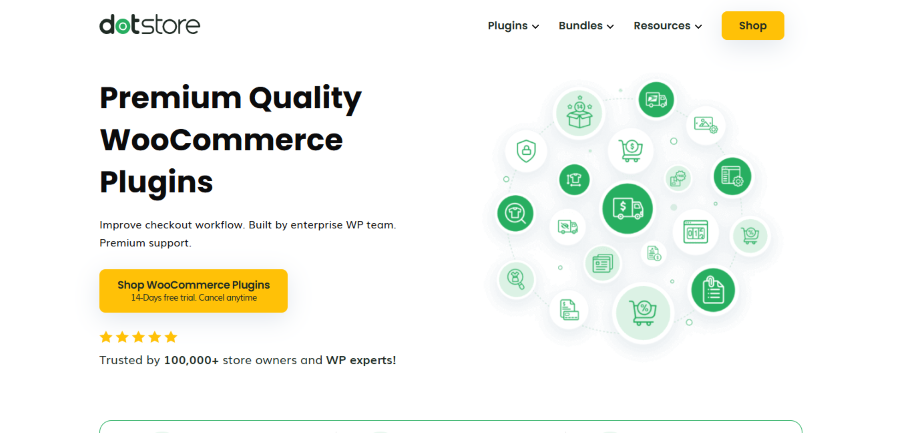
DotStore has established itself as one of the most versatile players in the WooCommerce extension market. With over 100+ WooCommerce plugins in their arsenal, they’re the go-to source for solving nearly any eCommerce challenge you might face.
Standout Features:
- Product bundles and discount solutions that boost average order value.
- Advanced shipping plugins that solve complex logistics challenges.
- B2B-specific extensions that transform your store for wholesale buyers.
- Subscription management tools that create recurring revenue streams.
Who Should Use DotStore:
You’ll love DotStore if you’re running a growing store that needs specialized functionality without breaking the bank. Their extensions are particularly valuable for businesses with complex product catalogs or unique shipping requirements.
Pricing:
Extensions range from $49-$199 annually, with bundle options that can save you up to 50% if you need multiple plugins.
2. Crocoblock: The Visual Builder Specialists
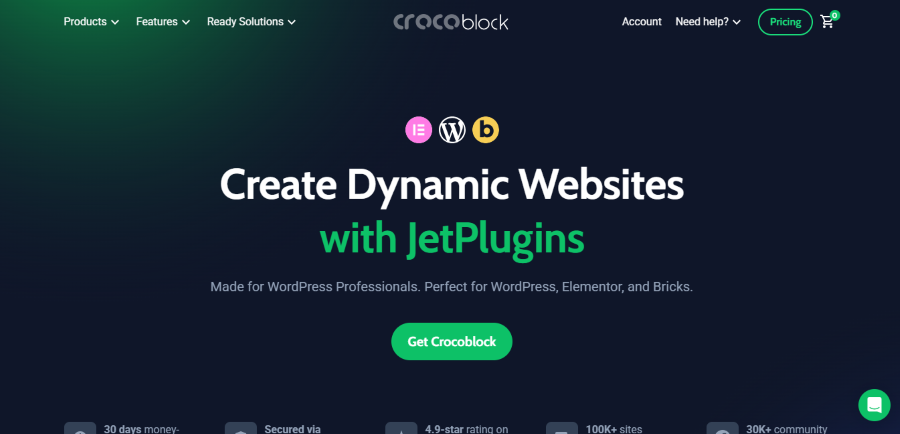
If you’ve ever felt limited by your WooCommerce store’s design capabilities, Crocoblock might be your new best friend. They’ve made a name for themselves by creating tools that give you unprecedented visual control over your store.
Standout Features:
- JetWooBuilder for creating custom product page layouts without coding.
- Dynamic content tools that personalize the shopping experience.
- Custom taxonomy and filtering systems that make navigation a breeze.
- Integration with Elementor for drag-and-drop store building.
Who Should Use Crocoblock:
Crocoblock is perfect for store owners who want their shop to stand out visually. If you’ve been frustrated by the limitations of your theme and want more control without hiring a developer, their suite of tools will be a game-changer.
Pricing:
Their annual subscriptions start at $69, with a lifetime option at $249 that many store owners find to be an exceptional value.
3. PluginHive: The Shipping and Integration Masters
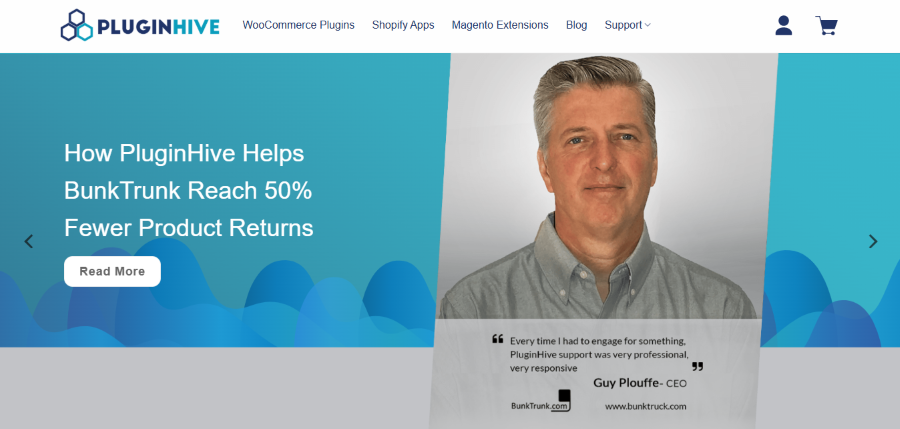
Shipping complications can sink an otherwise successful store. PluginHive has focused its efforts on solving the complex puzzle of eCommerce shipping and third-party integrations.
Standout Features:
- Direct integrations with major carriers like UPS, FedEx, and DHL.
- Amazon, eBay, and Etsy integration for multichannel selling.
- Real-time shipping rates that improve cart conversion.
- Advanced tracking and delivery notifications.
Who Should Use PluginHive:
If shipping logistics are giving you headaches, or if you’re looking to expand to multiple sales channels, PluginHive’s solutions can save you countless hours and prevent costly shipping errors.
Pricing:
Their plugins start at $79 annually, with specific pricing based on which carriers or platforms you need to integrate with.
4. YayCommerce: The Newcomers Making Big Waves
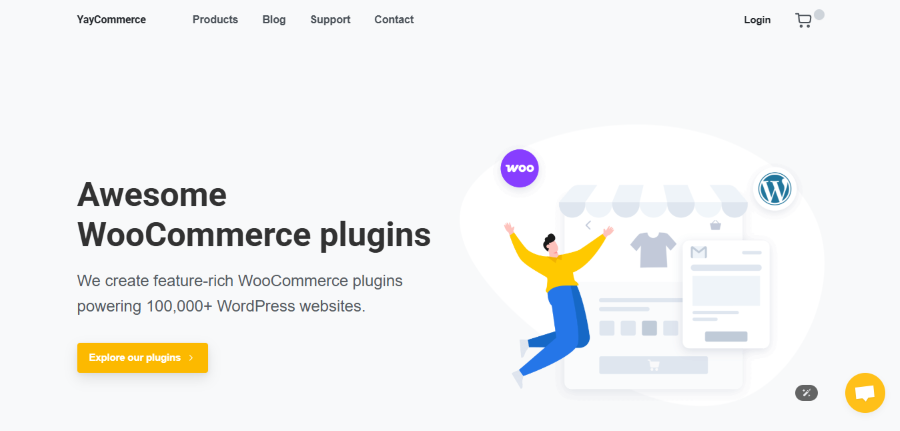
YayCommerce might be relatively new to the scene, but they’ve quickly gained a following for their user-focused approach and modern solutions to common WooCommerce problems.
Standout Features:
- Currency switcher and product filter plugins that enhance user experience.
- AJAX-powered search that helps customers find products faster.
- PDF invoicing and packing slip generation.
- Review management tools that build social proof.
Who Should Use YayCommerce:
Store owners looking for modern, well-supported extensions that focus on improving the customer experience will find YayCommerce’s offerings particularly valuable.
Pricing:
Many of their basic plugins are free, with premium versions starting around $49 annually.
5. WPExperts: Custom Solutions at Scale
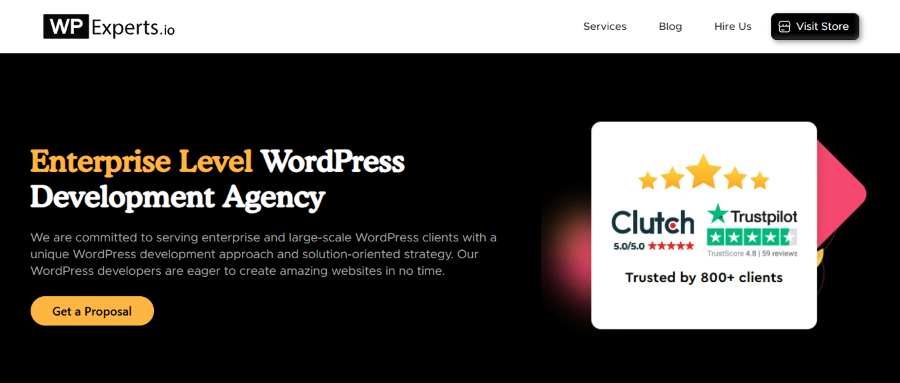
WPExperts straddles the line between product company and development agency, offering both pre-built extensions and custom development services for WooCommerce stores.
Standout Features:
- Advanced reporting tools that provide actionable insights.
- Custom checkout field editors for gathering essential information.
- Subscription and membership extensions for recurring revenue.
- Custom development services when off-the-shelf won’t cut it.
Who Should Use WPExperts:
Medium to large businesses that need both ready-made solutions and occasional custom development will find WPExperts’ hybrid approach particularly beneficial.
Pricing:
Plugin pricing varies from $39-$199 annually, with custom development quoted based on project scope.
6. YITH: The Prolific Pioneers
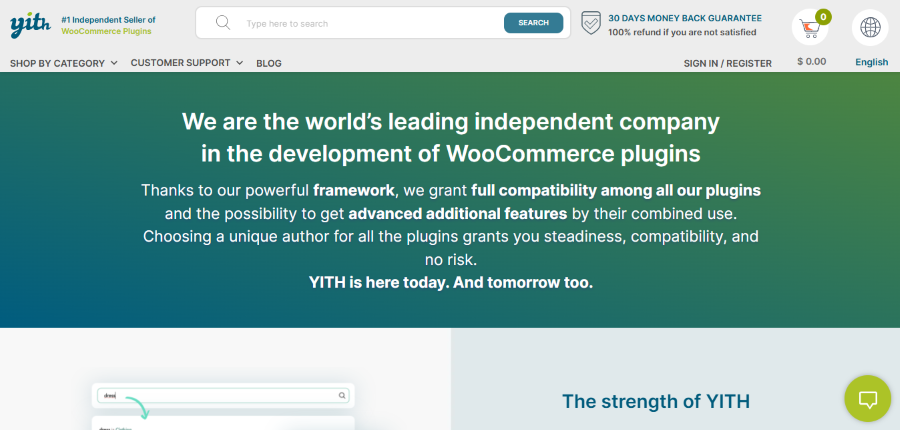
YITH (Your Inspiration Themes) is one of the most prolific developers in the WooCommerce ecosystem, with over 100 extensions covering virtually every aspect of eCommerce functionality.
Standout Features:
- Wishlist plugins that increase return purchases..
- Advanced product filters and comparison tools.
- Auction and booking extensions for specialized stores.
- One-click checkout options to reduce abandonment.
Who Should Use YITH:
If you want a one-stop-shop for almost any WooCommerce extension need, YITH’s massive catalog ensures you’ll find solutions for most common (and many uncommon) store requirements.
Pricing:
YITH offers both free and premium versions of most plugins, with premium options ranging from $39-$129 annually. Their club membership ($199) provides access to all plugins at a significant discount.
7. IconicWP: Premium Quality for Serious Stores
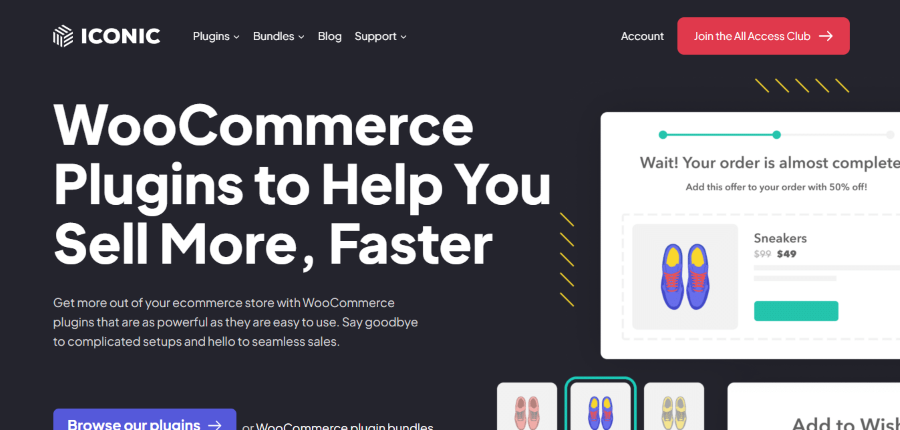
IconicWP has positioned itself at the premium end of the WooCommerce extension market, with a focus on high-quality, high-performance solutions for serious store owners.
Standout Features:
- WooThumbs for enhanced product imagery and galleries.
- WooCommerce Product Configurator for customizable products.
- Show Single Variations as separate products.
- Order delivery date and time selection tools.
Who Should Use IconicWP:
Store owners who prioritize quality and performance, particularly those selling visually-driven or customizable products, will find IconicWP’s extensions worth every penny.
Pricing:
Their plugins start at $49 annually, with a full bundle available for $249 per year.
8. Template Monster: Beyond Just Templates
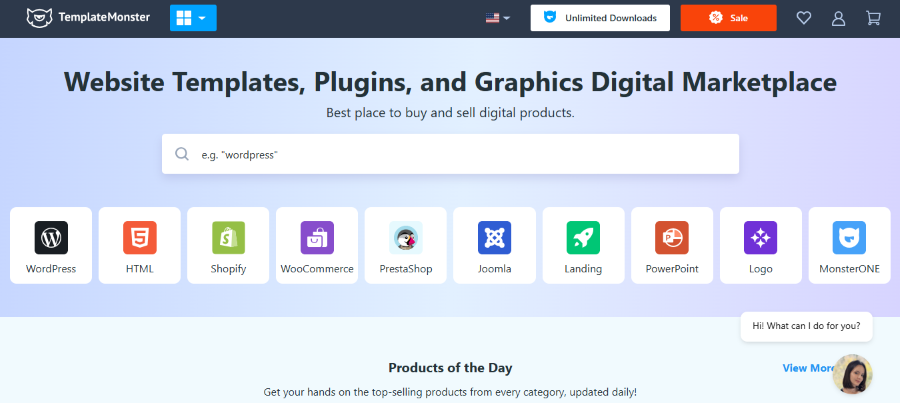
While known primarily for themes, Template Monster has evolved into a comprehensive source for WooCommerce solutions, including plugins, templates, and complete store packages.
Standout Features:
- Huge library of WooCommerce-specific themes
- Ready-to-go store templates for various industries
- Bundled plugin collections for specific business types
- Regular marketplace sales that offer significant discounts
Who Should Use Template Monster:
New store owners who want a head start with pre-designed solutions, or established stores looking for a visual refresh will find Template Monster’s marketplace particularly useful.
Pricing:
Individual themes range from $39-$99, with plugins typically between $29-$79. Complete store packages can range from $99-$299.
9. iThemeland: Specialized Tools for Niche Needs
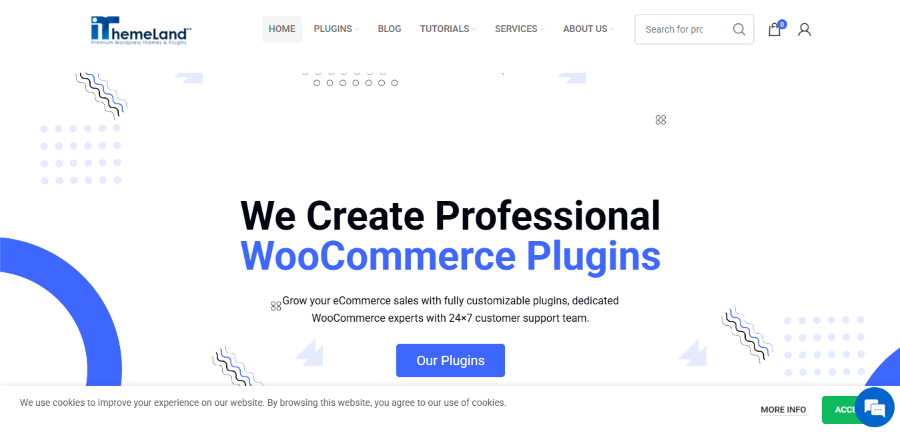
iThemeland focuses on solving specific, often overlooked challenges in the WooCommerce ecosystem, particularly around product data management and admin efficiency.
Standout Features:
- Advanced bulk editing tools for product management.
- Front-end product submission for marketplace stores.
- Private store and catalog options for exclusive shops.
- Advanced product specifications and attributes management.
Who Should Use iThemeland:
Store owners with large product catalogs or those building marketplace environments will find iThemeland’s admin-focused tools incredibly time-saving.
Pricing:
Plugin prices range from $34-$149 annually, with lifetime licenses available at approximately 3x the annual price.
10. WebAppick: Data Management and Feed Specialists
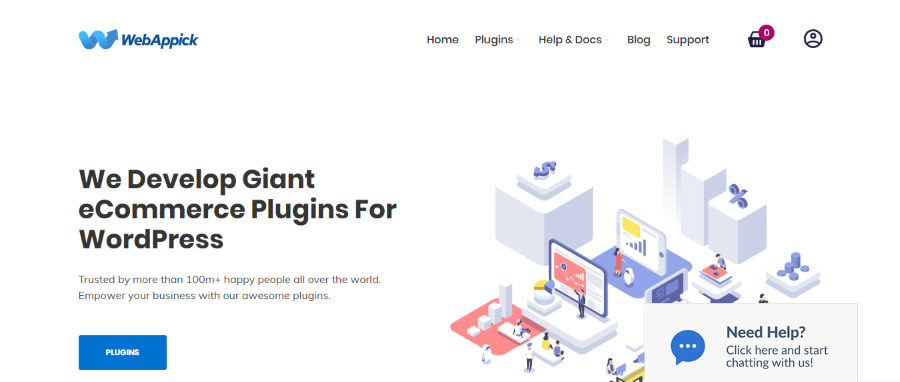
WebAppick has carved out a specific niche by focusing on product feed management and data manipulation tools that help WooCommerce stores integrate with other platforms.
Standout Features:
- Product feed manager for Google, Facebook, and other platforms.
- Inventory management and synchronization tools.
- Import/export solutions for product data.
- Category mapping and product organization tools.
Who Should Use WebAppick:
If you’re running multichannel sales or need to advertise products across various platforms, WebAppick’s feed management tools can save you countless hours of manual data entry and formatting.
Pricing:
Most solutions range from $49-$129 annually, with custom enterprise solutions available for larger operations.
Common Questions About WooCommerce Product Companies
Q: Do I really need premium extensions, or can I get by with free options?
While many free extensions exist, premium options typically offer better support, more regular updates, and more comprehensive features. Think of it as the difference between a free basic smartphone app and its premium version – you can get by with free, but the premium experience is often worth it for business-critical functions.
Q: How many extensions can I add before my store slows down?
There’s no magic number, but we generally recommend being selective. Each extension adds code to your site. Focus on extensions that solve specific problems rather than adding every cool feature you find. Quality hosting can also help mitigate performance impacts.
Q: Are these companies’ products compatible with my theme?
Most reputable WooCommerce extension developers design their products to work with standard WooCommerce hooks and templates. However, some highly customized themes might require adjustments. Check compatibility notes and take advantage of money-back guarantee periods to test.
Q: Is it better to buy individual plugins or get a membership/bundle?
If you need three or more plugins from the same company, membership options usually provide better value. However, if you only need one specialized solution, individual purchases make more sense.
Q: How do I know which company’s product is best for my specific need?
Start by defining your exact problem, then compare solutions based on features, support quality, update frequency, and user reviews. Many companies offer demo versions or money-back guarantees that let you test before fully committing.
Conclusion: Investing in the Right WooCommerce Partners
The best WooCommerce product companies don’t just sell you plugins – they become partners in your eCommerce journey. When selecting extensions for your store, look beyond price and features to consider support quality, update frequency, and compatibility with your existing setup.
Remember that while it might be tempting to load up your store with dozens of cool features, strategic selection of extensions that solve your specific pain points will yield better results than a kitchen-sink approach.
Have you used products from any of these WooCommerce companies? We’d love to hear about your experiences in the comments below!
